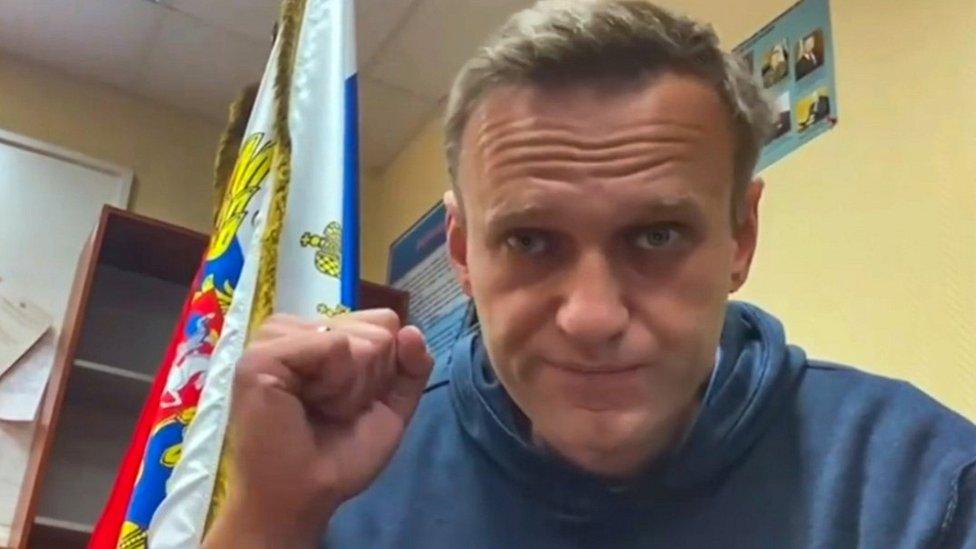How Russian state media are spinning Alexei Navalny death
- Published
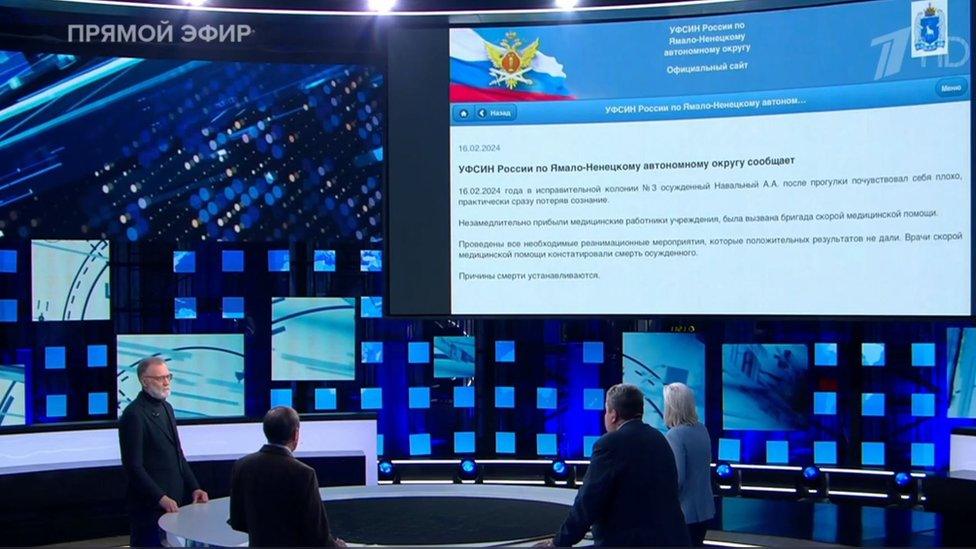
Navalny's image has been omitted from state TV reports on his death
Russian state media tend not to give much or any airtime to critics of the government, and their initial treatment of Alexei Navalny's reported death continues in this vein.
On state TV channels, the media outlets with the biggest audiences in Russia, there has been minimal coverage of Navalny's death, and the first reports were largely slow to come and perfunctory.
On two of the most popular channels - Channel One and Rossiya 1 - it took almost 45 minutes and an hour respectively after the announcement, before it was mentioned.
These reports provided no contextual information of who Navalny was, nor why he was in prison.
One didn't even mention his full name, referring to him only as "Navalny" - despite telling viewers "the most thorough investigation" into his death would take place.
When a liberal politician appearing on another popular state TV channel tried to express his condolences on Navalny's death, he was cut off by the programme's host, who asked him what this had to do with the topic they were discussing.
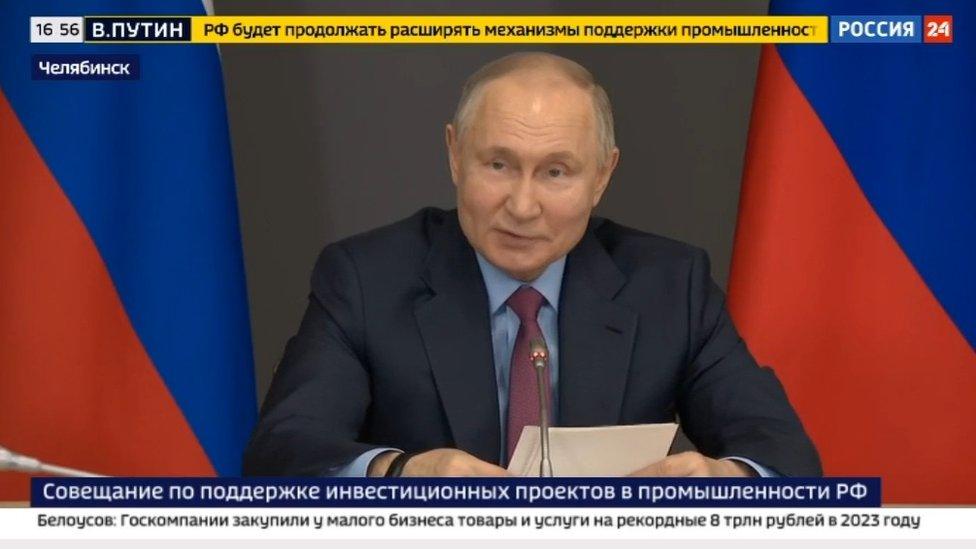
President Vladimir Putin featured prominently on state TV on Friday - but he has not publicly commented on Navalny
On social media, however, it is quite a different picture.
The news has been all over platforms like X (formerly Twitter) - where it was a top trending topic - and Telegram, an increasingly popular source of news.
Posts on Navalny were among the most viewed on Telegram, garnering hundreds of thousands - sometimes over a million - views, in hours.
And while Navalny's team says it has not yet confirmed the news, many prominent figures sympathetic to his cause voiced incredulity and sadness.
"If this is true, then, regardless of the formal reason, Vladimir Putin personally bears responsibility for the premature death," Mikhail Khodorkovsky, former Russian oligarch turned Putin critic, wrote on Telegram. Other opposition figures echoed those remarks.
Several pro-government figures have insinuated it is the West or Russian opposition, rather than President Vladimir Putin, who stand to benefit from the sudden death of Putin's most prominent critic in Russia.
Margarita Simonyan, editor-in-chief of state international broadcaster RT, was quick to ridicule Western reaction.
"I won't even begin to explain to them that everyone has long forgotten [Navalny], that there was no point in killing him, especially before the elections, that it would be beneficial to completely opposite forces," she said.
President Putin is expected to be re-elected next month for a fifth presidential term, having cracked down on opponents.
Channel One presenter Anatoly Kuzichev also claimed Navalny had been "safely forgotten even by his associates", and speculated that his death may have been "an accident" or perhaps an act of "terrible sabotage".
In a similar vein, Russian Foreign Ministry spokeswoman Maria Zakharova suggested there was something "self-revealing" about the swiftness of Western leaders' response.
"There has been no forensic examination yet, but the West's conclusions are ready," she said.
Watch: Russians dragged away after leaving Navalny tributes

Alexei Navalny: More coverage
OBITUARY: Russia's most vociferous Putin critic
BEHIND BARS: Life in notorious 'Polar Wolf' penal colony
IN HIS OWN WORDS: Navalny's dark humour during dark times
SARAH RAINSFORD: Navalny was often asked: 'Do you fear for your life?'

Related topics
- Published16 February 2024
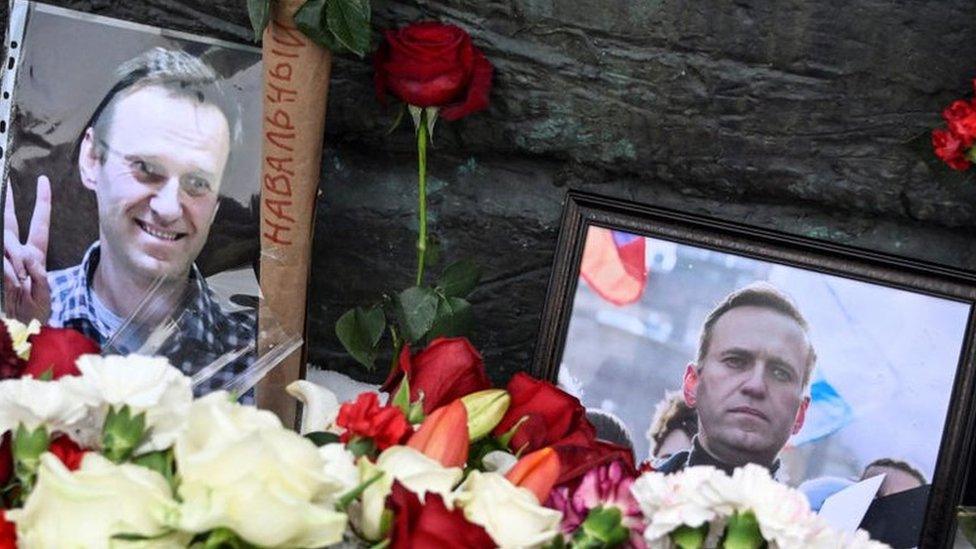
- Published16 February 2024
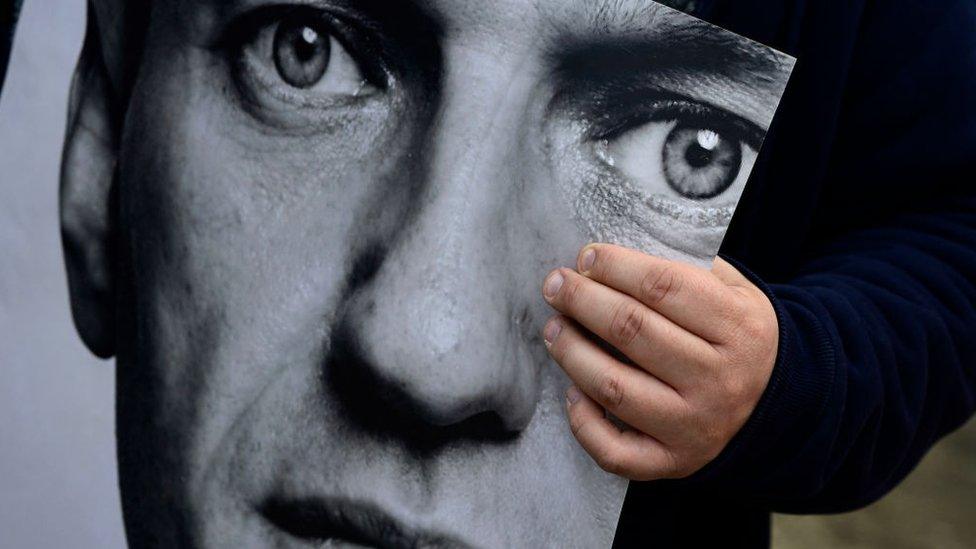
- Published16 February 2024
